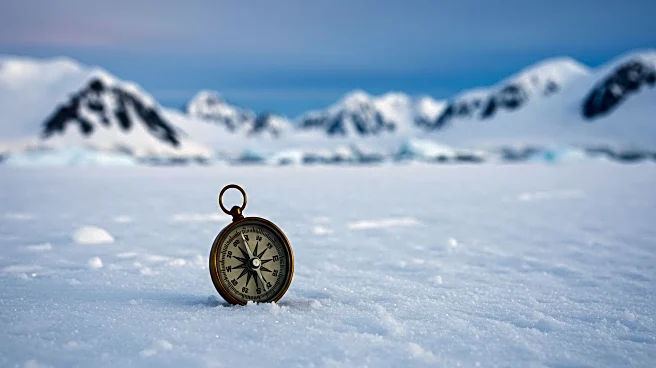What is the story about?
What's Happening?
The remains of Dennis 'Tink' Bell, a British meteorologist who died in Antarctica in 1959, have been discovered on King George Island. Bell was part of the Falkland Islands Dependencies Survey when he fell into a crevasse during a glacier trek. Despite initial rescue attempts, he was lost to the icy depths. Recent discoveries by a Polish team revealed bone fragments and personal items, which were identified through DNA analysis. The remains were transported to the UK, providing closure to Bell's family after decades of uncertainty.
Why It's Important?
The discovery highlights the dangers faced by early Antarctic explorers and the harsh conditions they endured. It underscores the advancements in forensic science, allowing for identification and repatriation of remains long lost to the elements. This event also serves as a poignant reminder of the human stories behind scientific exploration and the sacrifices made in the pursuit of knowledge. The melting glaciers, which facilitated the discovery, raise awareness about climate change and its impact on uncovering historical mysteries.
What's Next?
The British Antarctic Survey and related organizations may continue to search for other lost explorers as glaciers recede. This could lead to more discoveries and provide closure to families of those who perished in the harsh Antarctic environment. The findings may also prompt discussions on improving safety measures for current and future Antarctic expeditions. Additionally, the event may inspire further research into the effects of climate change on historical preservation and the potential for uncovering more lost artifacts.
Beyond the Headlines
The discovery raises ethical considerations regarding the treatment of human remains found in remote locations. It also highlights the emotional impact on families who have waited decades for closure. The event may influence policies on how such discoveries are handled and the responsibilities of scientific organizations in repatriating remains. Furthermore, it emphasizes the importance of preserving historical records and the role of international cooperation in scientific endeavors.


















